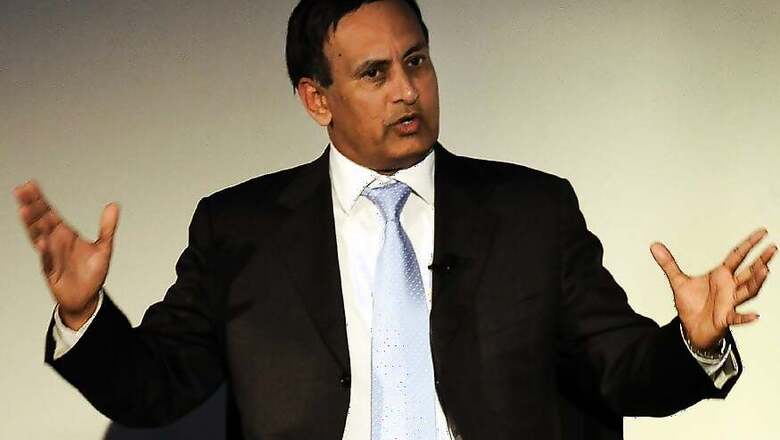
views
Washington: Supporting India's determination that "talks and terror" cannot go together, a former top Pakistan diplomat has said another high-level meeting between the two countries would be fruitless unless Islamabad ensures the terrorist infrastructure on its territory is dismantled.
Pakistan's recent initiatives for talks with India must be seen in the context of the economic and international pressures on it, former Pakistani ambassador to the United States Husain Haqqani told reporters here Tuesday.
His remarks have come just ahead of the Shanghai Cooperation Organisation Summit in Kyrgyzstan on June 13-14. India and Pakistan are part of the regional security grouping and leaders of both the countries are set to attend the meeting in Bishkek.
In a letter written to Prime Minister Narendra Modi last week, Pakistan premier Imran Khan had requested resumption of talks between the two countries to resolve all differences.
But no meeting has been planned between them on the sidelines of the summit.
Haqqani's remarks also came on a day the government in Islamabad presented its national budget amid an austerity drive to wriggle the country out of the financial mess it is in. Earlier this month on Eid festival, Khan said there will be no increase in the defence budget because of "our critical financial situation". The defence budget presented Tuesday reflected that sentiment with no increase proposed in expenditure compared to last fiscal.
Weeks ago, Khan's government negotiated a USD 6 billion bailout package with the International Monetary Fund to overcome the financial woes. Haqqani said another high-level meeting between India and Pakistan would be meaningless unless it is accompanied with dismantling of terrorist infrastructure in Pakistan and giving up the notion of the two countries being "permanent enemies".
"Between 1950 and December 2015, when Modi dropped in on Prime Minister Nawaz Sharif in Lahore, leaders of the two countries have met 45 times," he said, but talks have never led to durable peace.
"The door to negotiations must never be considered permanently shut but nor should dialogue be an end in itself," he reiterated. Haqqani, now the director for South and Central Asia at the Hudson Institute, is considered an uncompromising critic of the Pakistani establishment and the Jihadi ideology. He has often voiced his disagreements with the establishment during public discussions.
In an article published recently, he wrote that Prime Minister Narendra Modi is right to have determined that talks for talks' sake are meaningless as long as Pakistan refuses to change its view of its larger neighbour as a permanent enemy.
In Haqqani's view hostility towards India emanates from Pakistan's national ideology based on religious identity and antipathy cultivated by the military that dominates the country. Like many other countries, India and Pakistan have unresolved disputes, he said, but other countries do not have national ideologies revolving around opposition to others.
"Pakistan tends to engage in talks with India for global respectability, but its dominant military is unable to shed its ideological aversion to normal ties with India," he stressed. The former diplomat cited the Pakistani military and said it was "not raised proportionate to an external threat".
"It needs a threat proportionate to its size to justify its claims on the meagre resources of a low-income country," he said, adding Pakistan inherited one-third of British India's army, which had originally been raised for the Second World War.



















Comments
0 comment